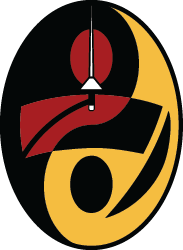The First Period: reconnaissance
This first period is the reconnaissance period, rather than trying to score, instead you should test the opponent’s range, mobility and adaptability, generally try to develop a feeling for how the opponent likes to fence. Below are some considerations to take into account while building your hit.
- Is your opponent an attacker, a defender or a counter-attacker?
- Do they come strongly off the line? How fast are they? How fast is their hand? Are they balanced and able to move easily in either direction?
- Are their blade actions precise or large and wild?
- Do they try to hit with every action or are some actions false actions?
- Do they respond quickly or slowly?
- How do they react when you take the blade; retreat or take it back?
- What parry do they lead with, what parry do they default to in panic mode? Do they make compound parries? Do they have infighting skills?
- What is their most often used preparation? How many times do they show the preparation before starting the action?
- Do they use active maneuvering to set up their action or seem simply to execute when the space/time is favorable?
- Do they attack with or without the blade? Do they retreat out of distance after attacking or hang around after recovering from the lunge? Do they recover at all? Or do they counter parry, or remise, or continue moving forward to avoid getting hit? Is their counter-parry/remise a planned second intention action or reflexive?
- Is your opponent capable of a prolonged exchange or do they make one action and then pause to regroup before trying anything else.
- Do they riposte immediately and accurately?
- Do they wind up before committing to the action?
- Does the opponent seem to understand and apply the tactical wheel?
What are their go-to actions on the attack and what are their go-to actions on defense. - What target does the opponent favor to hit? With what action?
- Which zone on the strip does your opponent like to score on? Where are they least comfortable? When you push them to the end zone do they try get out of that space right away or are they happy to fence there?
- Are they an open intent or hidden intent fencer?
Remember, recon starts in the pool round! Watch the fencers in your pool, make note of what they do so that you are prepared when you fence them. Making notes on your opponents every time you see them or fence them helps refine your reconnaissance the next time you encounter them at a tournament. Efficient use of this information will help you get early control of the bout and keep it through the finish.
Some of this reconnaissance work may extend into the second period of your DE bout as the opponent may adapt during the break, but more on the second period for next time.
The other coaches and I at the fencing academy are always trying to drum into our students that being aware off the piste, as well as on it, is what makes a good fencer into a great fencer.

